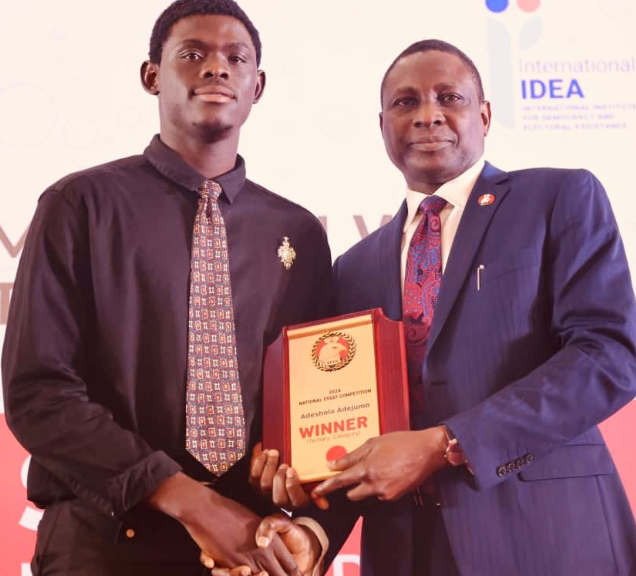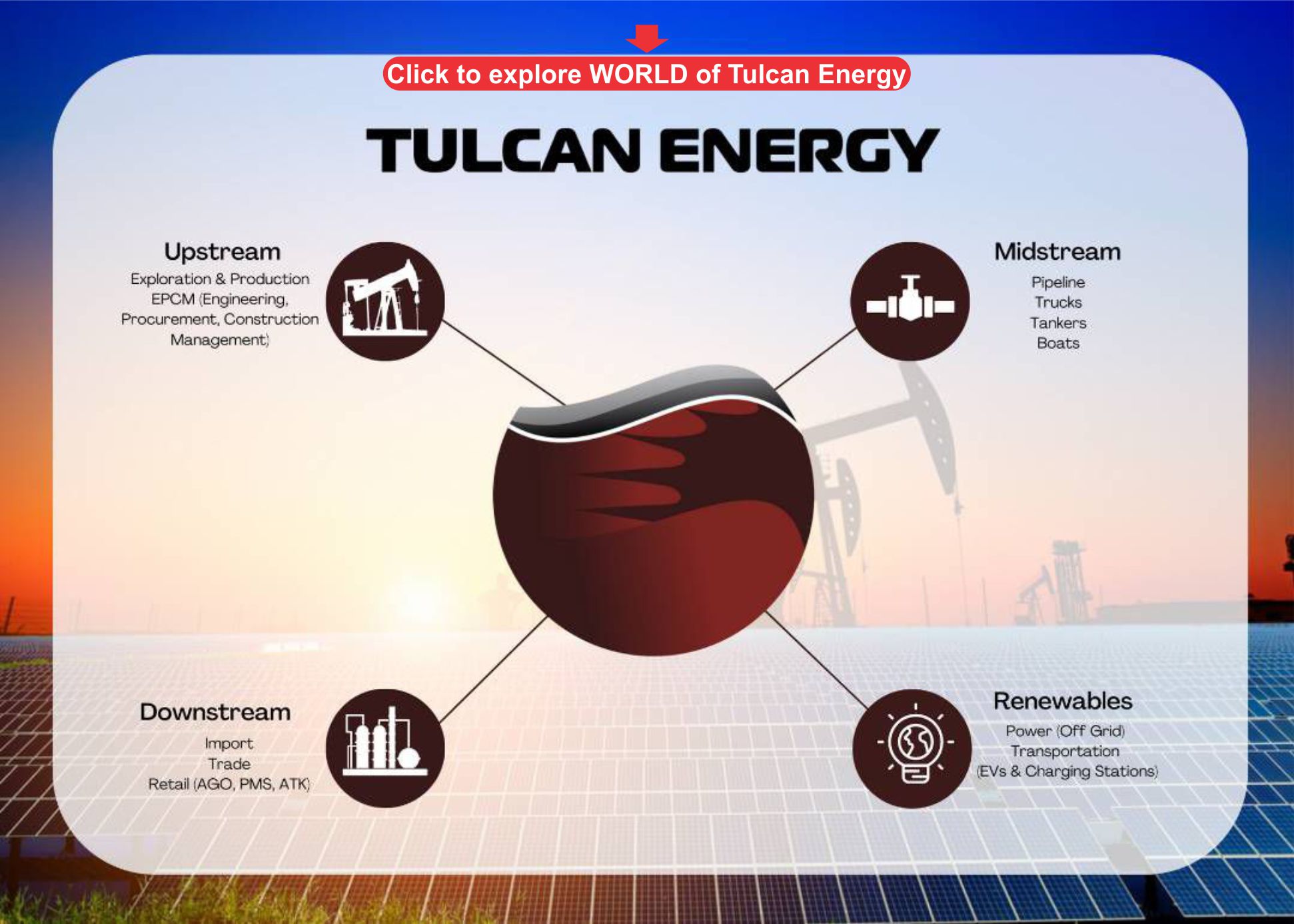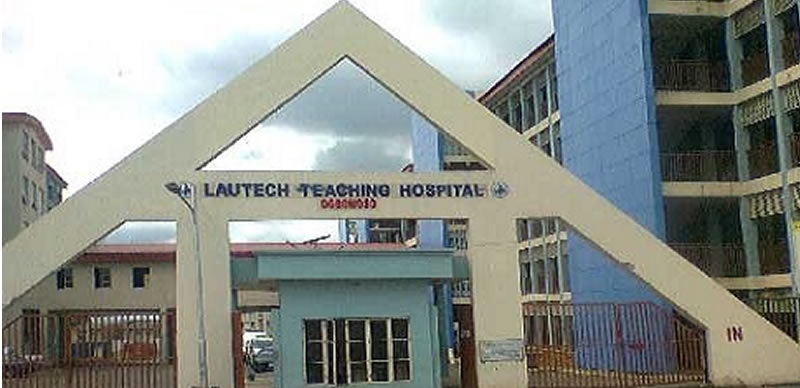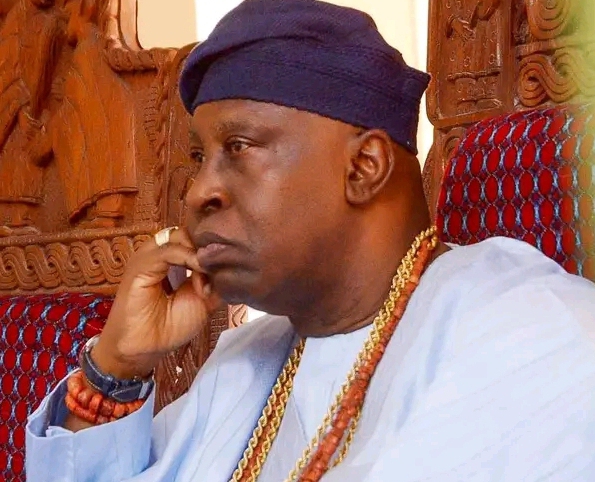Image caption: Adesola Adejumo receiving the award from Executive Chairman of EFCC, Mr. Ola Olukoyede
Ogbomoso student wins 2nd edition of EFCC Essay Competition
Yinka ADETUNJI
Advertisement
Adesola Adejumo, an Ogbomoso indigene, emerged winner of the 2nd edition of the Economic and Financial Crimes Commission (EFCC) Essay Competition for the Year 2024.
Adejumo, a final year law student of Adeleke University, Ede, Osun state, came top beating off competitions from several others. The topic of the essay whose length was pegged at about 1, 500 words was “Using technology for social good: How digital skills can be leveraged to promote transparency in governance.” Originality was a precondition so seeking assistance from Artificial Intelligence (AI) Apps was strictly forbidden. Also, students and wards of EFCC officials were ineligible, it was stated.
According to the advertisement, “logical presentation of facts on the ways technological skills can be used to address social and environmental issues such as developing Apps for healthcare or education, analysing data for social justice causes, or creating digital tools for environmental sustainability,” was emphasized.
The competition was for both secondary and tertiary categories with three winners emerging in each. Adejumo who passed out of George Green College, Ogbomoso, came first in the tertiary category. Two runners up were also picked for awards.
Advertisement
The award presentation came up in Abuja, the Federal Capital Territory, last October, during the National Cybercrime Summit 2024, at the Banquet Hall of the Presidential Villa.
Asked how he got to know about the competition, Adejumo who said that was his first time participating, disclosed that the dean of his faculty informed the students and encouraged them to participate.

EFCC reporting the feat on its website – “Winners of EFCC’s 2nd Essay Competition emerge” – prior the presentation of awards to the winners, notes, “The Economic and Financial Crimes Commission, EFCC, hereby announces winners of its 2nd EFCC Essay Competition, following a call for entries in August 2024.
“The competition, aimed at promoting critical thinking and innovative solutions to cybercrimes, saw over 1,000 submissions from young Nigerians across the country.
The competition featured two categories: Using Technology for Social Good: How Digital Skills can Be Leveraged to Promote Transparency in Government as the thematic focus for the Tertiary Category, while the Secondary Category had Exploring Alternatives to Cybercrimes for Sustainable Development as its topic.
Related Post:
“Following a careful review of all entries by a distinguished panel of judges selected from the academia, media, and civil society organizations, Pearl Okereke took the first position in the Secondary Category. Covenant Adesegun and Emmanuel Victor emerged the first and second runners-up respectively.
“In the Tertiary Category, Adeshola Adejumo came first, while Favour Momoh came second, and Godwin Ajala finished third.
“The winners will be honoured at the upcoming National Cybercrime Summit 2024, scheduled to take place on Tuesday, October 22, 2024, at the Banquet Hall of the Presidential Villa, Abuja. The event will include an award presentation ceremony spotlighting the outstanding essays that highlighted innovative approaches to leveraging technology for transparency and combatting cybercrimes through sustainable development strategies.
Advertisement

“The competition, the second in the series, underscores the EFCC’s commitment to engaging youths in the fight against cybercrimes while encouraging responsible uses of digital skills for social good.
“The EFCC remains dedicated to mobilizing all its stakeholders, including youths, towards collaborative engagement in its ongoing fight against economic and financial crimes and other acts of corruption.”
The award ceremony has since been held, with the winners going home with various cash prizes.
Recall ogbomosoinsightonline,com reports the feat by David Loola Alayande who emerged joint best candidate nationally in the 2024 Unified Tertiary Matriculation Examination (UTME), with 367 marks.





